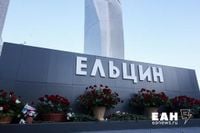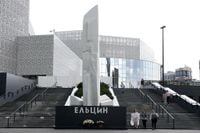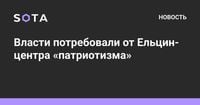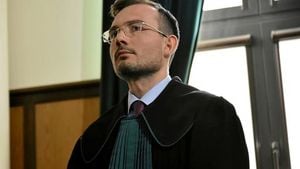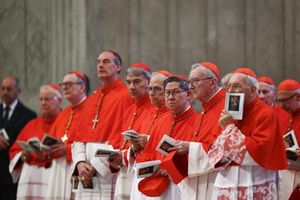The Yekaterinburg Yeltsin Center has found itself at the center of a heated discussion regarding its perceived level of patriotism in the events it hosts. This comes after comments made by Artem Zhoga, the Presidential Envoy for the Ural Federal District, who suggested that the center should adopt a more patriotic stance and exclude individuals with anti-Russian sentiments from its programs.
According to a statement by the Yeltsin Center, the organization has been in a constant dialogue with regional authorities and the presidential administration since its inception ten years ago. "We have always formed our program in accordance with federal law regulating the activities of presidential centers," the center emphasized. This sentiment reflects the center's commitment to maintaining its operational integrity while navigating the complex landscape of political expectations.
Zhoga's remarks were made during a meeting with Sverdlovsk journalists, where he expressed a desire to reform the Yeltsin Center's activities to enhance its patriotic direction. He clarified that his concerns were not directed at the center itself but rather at the speakers invited to its events, many of whom he believes hold anti-Russian views. "This needs to be excluded, of course. I believe everything is fine; let it work in its format, as it was created in memory of the first President of the Russian Federation," Zhoga stated.
The Yeltsin Center has been proactive in its approach to collaboration with local authorities. Recently, members of the supervisory board, including Zhoga himself, unanimously approved the report on the center's activities for 2024. This approval showcases the center's ongoing commitment to transparency and accountability in its operations.
In June, the Yeltsin Center is set to host the III Forum "Patriots of the Urals." Zhoga indicated that this event would serve as a platform to attract specialists and individuals who are patriotic-minded. He emphasized that it is not the building that creates the atmosphere but the people involved. This philosophy underlines the center's mission to foster a community that aligns with patriotic values.
Despite the push for a more patriotic focus, the Yeltsin Center has faced challenges. In recent months, it has canceled several events featuring speakers who have been critical of the Russian government. Notable cancellations include the presentation of a book by Nina Khrushcheva and a lecture by Alexander Arkhangelsky, both of whom have been labeled as foreign agents by the Ministry of Justice. These cancellations have sparked discussions about the center's commitment to free expression versus its alignment with patriotic expectations.
Zhoga's comments also resonate with broader sentiments expressed by Russian President Vladimir Putin, who has highlighted the importance of instilling patriotism in the younger generation. Putin remarked that it is especially crucial for Russian children to grow and develop by relying on examples of patriotism, further emphasizing the role of national heroes in shaping the educational narrative for youth.
The Yeltsin Center's management has reiterated its commitment to preserving the legacy of Boris Yeltsin, the first President of Russia, while navigating the complexities of contemporary political discourse. The center is financed through a combination of budget allocations, donations, and its own revenue, ensuring its operational sustainability.
As the Yeltsin Center prepares for upcoming events and potential reforms, it remains to be seen how these changes will affect its programming and public perception. The ongoing dialogue between the center and regional authorities will be crucial in determining its future direction.
In conclusion, the Yeltsin Center stands at a crossroads, balancing its historical legacy with the current political climate's demands for patriotism. As it moves forward, the center's ability to engage with both the public and officials will shape its role in Russian society.
